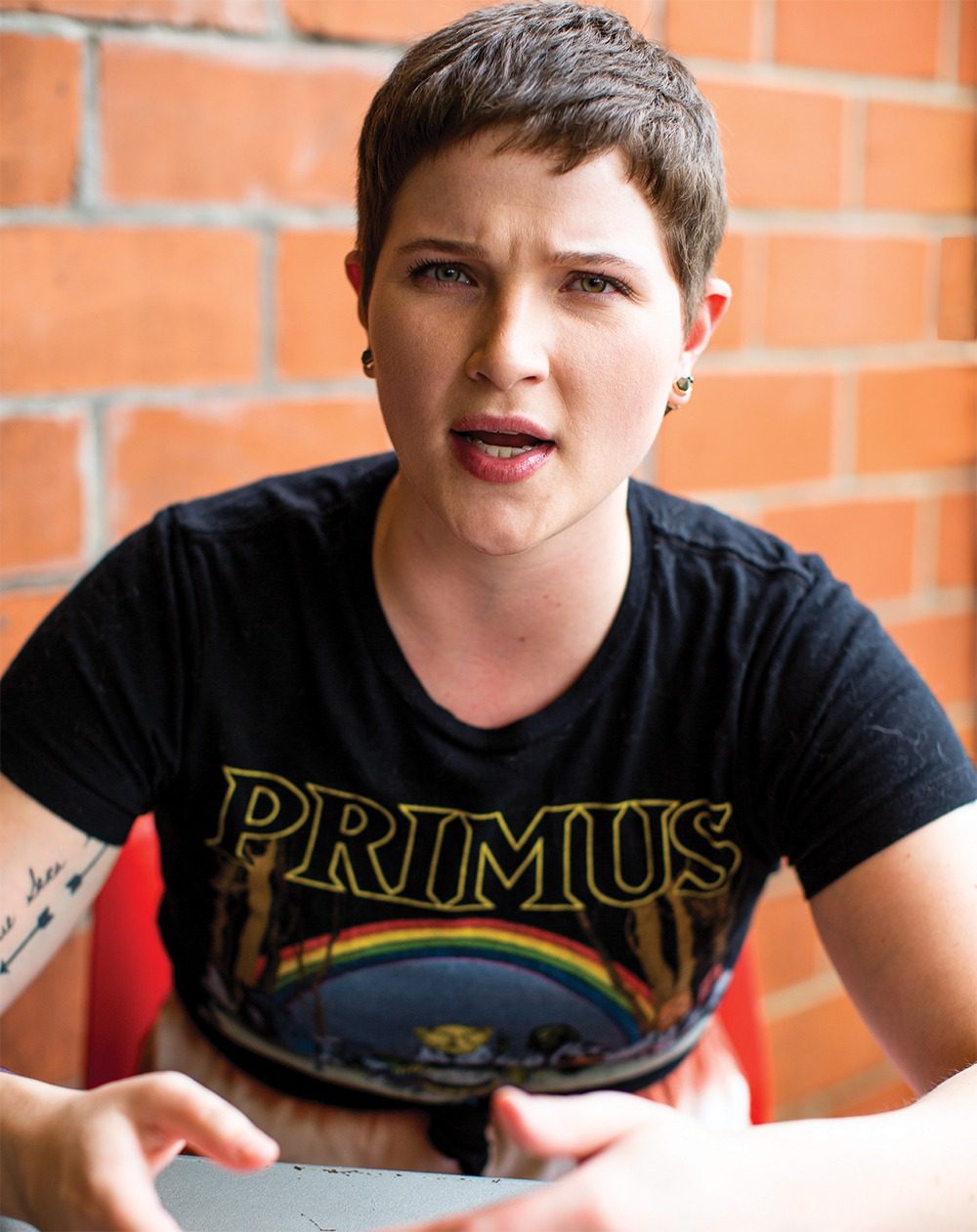To my surprise, those people, including my parents, continued to love me.

photo by Elizabeth Rudge
I grew up in an affluent suburb of Houston, in an upper-middle-class household with two loving, supportive parents. I’m extremely aware of these privileges now, but I certainly wasn’t during my formative years. I was a precocious kid, a trait exacerbated by puberty and my conviction that I was a big fish in a small pond that deserved better than Tex-ass.
When I started college at a prestigious liberal arts school in Southern California, my delusions of grandeur were quickly replaced by the reality that I wasn’t particularly special when compared to my new peers; I was just a guppy in the ocean. Rather than cope in a healthy way, I decided to just get really good at partying and making questionable life choices. It was an effective way to mask my insecurity, until it wasn’t.
I found out I was pregnant in the fall of my sophomore year, during a routine well-woman exam at the campus health center. I spoke to the guy I was dating at the time and didn’t present options other than abortion, because at that stage of my life, what other options were there? He was supportive, paid for half, and took me to and from my appointments. There were no protesters outside the clinic that Wednesday (I think it was a Wednesday) morning, and the doctors and nurses were wonderfully kind and compassionate. I went home and tried to forget it ever happened.
Part of my facade of confidence and being blasé was maintaining an “It’s whatever! I’m fine, I’m having fun!” attitude about most situations, but I felt that narrative wouldn’t fly when speaking about an abortion. So I didn’t tell anyone, flunked out of that college in a blaze of glory that would have made a dying star proud, and came back to Houston with my tail between my legs, utterly defeated. Then I started telling people. I figured that I already had the mark of failure on me, so why not? To my surprise, those people, including my parents, continued to love me. And then I met new people who loved me! Some had even had abortions of their own. It was around this time I started realizing how much my privilege was showing.
The state of reproductive rights in Texas was grim when I moved back in 2010, and, frankly, that hasn’t changed. Our state legislature is nothing if not creative when it comes to restricting women’s bodily autonomy. My friends have been subjected to mandatory ultrasounds during which the fetus’s heartbeat is intentionally made audible, and in 2017 the Texas state legislature passed a law requiring abortion providers to bury or cremate fetal remains. The ultrasound and fetal cremation laws were devised to shame and traumatize women seeking abortions and to make abortion services prohibitively expensive for clinics to provide.
But Texas pro-choice organizations have fought relentlessly and have won a couple of important, high-profile victories.
Shortly after passing, the cremation law was blocked in federal court, and House Bill 2, a set of regulations responsible for closing over half of Texas’s clinics in the span of a couple of years, was overturned by the U.S. Supreme Court in 2016.
All but three of the remaining abortion clinics in the state are in major metropolitan areas, however, making it particularly difficult for women in rural areas to obtain abortions. My story isn’t particularly interesting, and my current activism is limited in its scope. I didn’t overcome gross obstacles to obtain my abortion, I had access to the resources I needed, and my friends and family supported me when I began speaking out. I know now that my abortion is nothing to be ashamed of or hide. I wanted to participate in this project to let other young women—who may feel a little broken, or less-than, or scared—know that they are far from alone in their experience.
We all have stories, and telling them reduces stigma surrounding an exceptionally common procedure.
